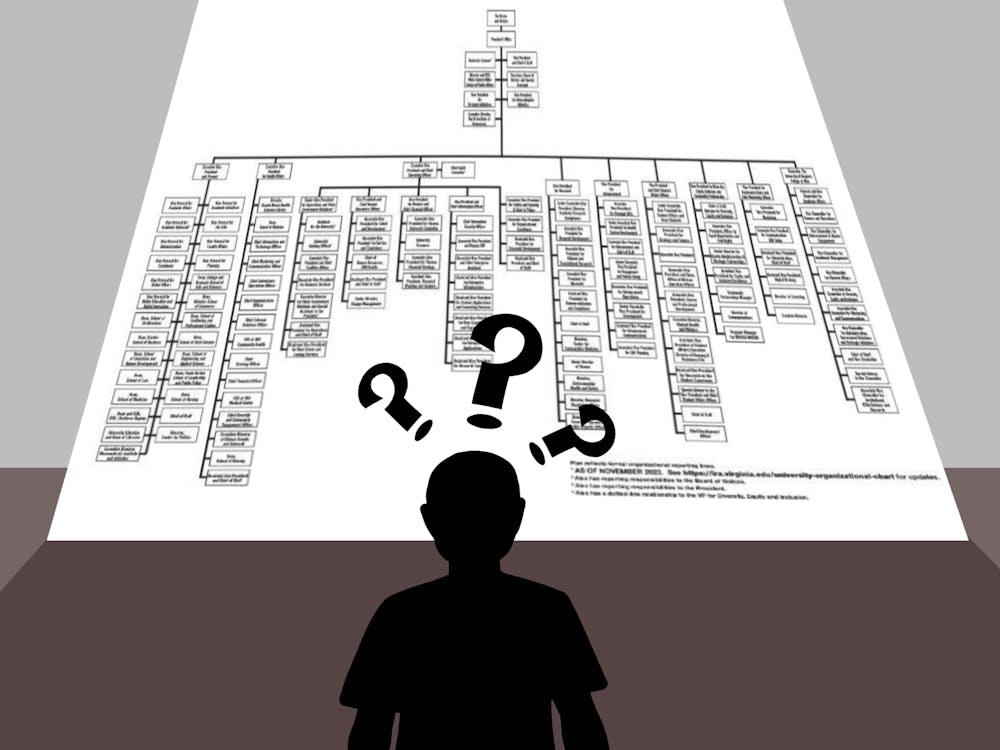The library system is seen by most as an equal opportunity space on Grounds. It’s a community center for research, study space, access to additional technological resources and collaborative areas. It’s impossible for any student to attend the University and not interact with the library system in some manner. The library system, although deeply ingrained in University life, is still flawed in many ways. Namely, both the “recall system” for checked out materials and the pricing of University printing services continues to frustrate and alienate students. If the library system is designed for students, it’s time the library prioritizes student interests.
First, we must examine the “recall system” sponsored within the University library circuit. Within this system, any individual who has checked out material from the library can receive notice that she must return her material within 10 days or face a penalty. According to the University website on library policies, anyone can place an order for a recall, as long as they meet “a need” for the material. In essence, the recall system places a preference for library users who fail to acquire library material before it was checked out by another library user. It additionally allows these same individuals to both strip the original borrower of the material she rightfully checked out first and possibly slap her with a fine of a dollar per day. For one, it penalizes students who take the initiative to check out library material first. With this in place, there’s no motivation to wait for a book to be returned or attempt to reach a book first —
the recall system allows students to arbitrarily place a trump card on materials.
In addition, anyone can technically use the library system beyond the University’s faculty, staff and students. Students and faculty from neighboring public universities and Virginia residents above the age of 16, with photo ID, can use the library system. This policy opens University students up to the risk of have a non-University affiliated library user recall any checked out library material from their possession, inverting the hierarchy of who should have preference to University materials. The only alternative is to engage in a “recall war” with the other library user, until one of the parties gives up. Frankly, this is a petty solution to the problem, and regulations should be put in place to make the recall option more exclusive to true library emergencies.
Secondly, the printing system at the University is profiteering off the students it should be serving. At other universities such as University of Delaware and the University of Kansas, the library systems allot monetary allowances to undergraduate students. While these allowances aren’t lavish by any means (Kansas’ program grants $8 of funds per undergraduate), this at least signals an attempt by their library administrations to accommodate student printing needs. At Temple University, students are rewarded with printing privileges based off the number of their enrolled credit hours, with a cap after 9 credit hours – this equals 300 sheets of free printing. Delving further into Temple’s printing policy, this student benefit emerges from their “University Services Fee.” Like Temple, the University already has a steep University Activity Fee, which mostly benefits athletics, as seen by the release of the 2015-16 budget documents. There’s absolutely no reason why the University cannot grant these privileges to current undergraduates.
Given a quick comparison of endowments between the University and Temple University – the University clocks in at a staggering $8.62 billion dollar endowment, while Temple pales in comparison, with a $513.6 million dollars. The financial capital of the University clearly exists to accommodate student needs, but isn’t utilized. The lack of movement for the library system to provide student friendly printing signals apathy for change, rather an inability to help. This is only compounded by the University’s printing pricing — double sided pages cost the same as single sided pages. With all the conversation on environmentally friendly University policies, why isn’t printing pricing designed to incentivize less paper consumption?
The library system in its current form impacts all undergraduates, and in many ways they succeed fantastically in their services. That said, the library system should reform to further serve the students it was intended to provide with resources. In its existing system, students are all too easily disadvantaged from retrieving material or printing original works by ineffective policies that should be changed. There’s no chance that student life will become disentangled from the libraries. However, it’s time the libraries double down on serving students.
Katherine Smith is an Opinion Columnist for The Cavalier Daily. She can be reached at opinion@cavalierdaily.com





